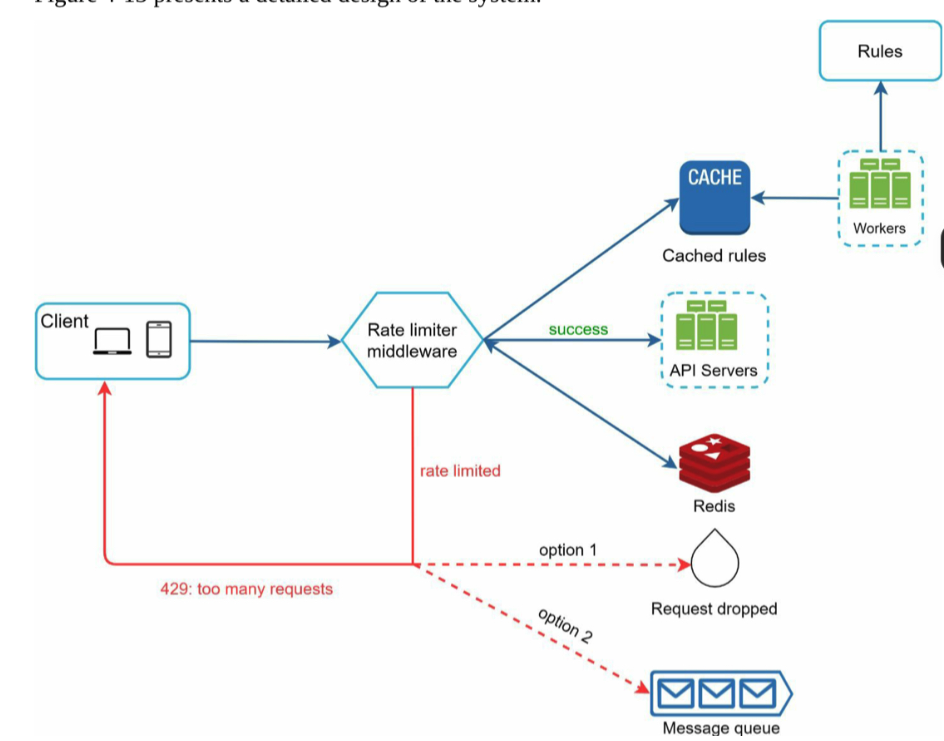CHAPTER 4: DESIGN A RATE LIMITER
1/19
There's no tags or description
Looks like no tags are added yet.
Name | Mastery | Learn | Test | Matching | Spaced | Call with Kai |
|---|
No analytics yet
Send a link to your students to track their progress
20 Terms
Requirement questions
Step 1
Is it a client side rate limiter or client side?
Does the rate limiter throttle request based on IP? User ID?
How many request are we talking?
Should it be a separate service or in application code?
Do we tell users they are throttled?
Common requirements
Low latency
High throughput
Low memory usage
High fault tolerance. If there are any problems with the rate limiter (for example, a cache server goes offline), it does not affect the entire system.
Status code for too many requests
429
Benefits of build your own rate limiter
You can choose algorithm
Algorithms for rate limiting
Token bucket
Leaky bucket
Fixed window counter
Sliding window counter
Sliding window log
Considerations for token bucket algo
Bucket size (burst request allowance)
Refill rate
Bucket grouping (per endpoint per IP per server)
Issue with fixed window counter
If the burst falls between 1 windows, up to 2x the limit would be allowed
How does sliding window log work
Keep track of each request timestamp
Get count of request in last 1s on every request
How does sliding window counter work
Uses fixed window counter, but use a percentage of each window
Not 100% accurate
Issues with refilling token bucket
A lot of load to constantly incrementing token counter
Alternative to refilling token bucket
Get token count
If positive, decrement token, update token timestamp, allow request
If negative, calculate new token count based on last updated token timestamp
How to make rules configurable
Use YAML config file, each rule has request filter, rate limit unit and requests per unit
Cache the rules
Add worker to update cache if rule changes
HTTP Headers for rate limiting
X-Ratelimit-Limit: total number of requests allowed
X-Ratelimit-Remaining: the remaining number of allowed requests
X-Ratelimit-Retry-After
Options when request hit rate limit
Drop
Put it in message queue and retry later
What’s the race condition challenge
Client needs to calculate how many token in the bucket as well incrementing the bucket in 1 atomic action
Otherwise 2 concurrent request may not count each other
Solution to race condition challenge
Use lua script for 1 atomic action
Use sliding window algo with Sorted String Set in Redis
Components needed for rate limiter
Rate limiter service
Redis
Rule store (cache)
How to improve performance
Close to user (multiple data centers or edge servers)
Synchronize data eventual consistency
How to reduce hitting rate limit
Cache on client side
Gracefully handle rate limit
Add sufficient back off time for retry
High level diagram
